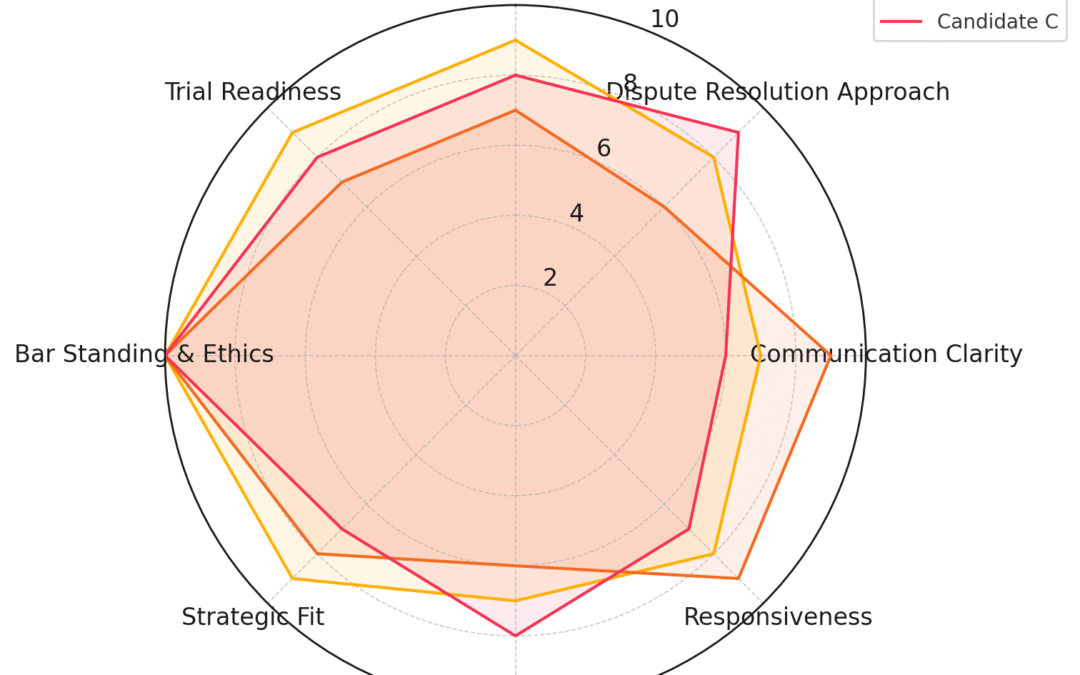Legal disputes between business partners, clients, vendors, or competitors can escalate quickly, disrupting operations and damaging reputations. Choosing the right attorney is a strategic decision that influences leverage, tone, and outcome. The wrong choice can stall resolution, deepen losses, or introduce new liabilities.
Assessing Your Specific Legal Needs
Business litigation spans diverse categories: breach of contract, partnership dissolutions, fiduciary duty violations, misappropriation of trade secrets, unfair competition, and supplier nonperformance, among others. Each category invokes distinct legal principles and procedural demands. Before contacting attorneys, identify the core issue—not just the surface conflict. For instance, what appears to be a straightforward contract breach may involve layered questions of interpretation, venue, or even regulatory violations.
Clarify whether your goal is monetary compensation, injunctive relief, or a negotiated settlement. If your primary concern is preserving an ongoing relationship, a litigation-heavy attorney may escalate tensions instead of resolving them. On the other hand, if time is critical (say, in a case involving stolen intellectual property) aggressive injunctions may be required within days.
Also, define your forum preference: courtroom litigation, binding arbitration, or facilitated mediation. Attorneys often specialize in one or more dispute resolution methods. Understanding the kind of advocacy you require filters candidates before the first call.
Researching Potential Business Dispute Attorneys
Professional directories like Martindale-Hubbell, Avvo, and Justia allow filtering by practice area, state licensing, peer reviews, and client feedback. Prioritize lawyers with verified business litigation experience, not general practice credentials. Cross-reference findings with your state bar association to confirm active licensure and disciplinary history.
Tap into peer and industry networks. Referrals from fellow business owners, former partners, or trade associations often yield leads grounded in shared context. A recommendation from a tech founder about an IP litigator carries more weight than a directory badge alone.
Look beyond Google’s top search results. Many reputable attorneys operate in leaner firms and don’t aggressively pursue search engine optimization. Local legal publications or bar journals often list recognized practitioners and rising professionals by specialty.
Evaluating Attorney Qualifications
Focus on evidence, not marketing. Review the attorney’s track record in comparable disputes both in terms of outcomes and procedural complexity. Someone who has settled five licensing disputes involving cross-border tech firms provides far more relevance than a general litigator who’s “handled contracts.”
Request case summaries or published decisions when available. Examine whether their work has survived appeals, withstood motions to dismiss, or generated favorable settlements early in proceedings. Experience defending a small business accused of fraud is not the same as experience initiating such claims.
Ensure they actively litigate. Some lawyers identify as “trial-ready” but haven’t argued a case in court in years. Active litigation experience enhances negotiation leverage, even when you’re not aiming for trial. Opposing counsel assesses not only facts but the credibility of your threat to escalate.
Verify bar standing. Check for any disciplinary action, unresolved complaints, or license suspensions. Every state bar maintains a searchable database of licensed attorneys. Active status and a clean record should be the baseline, not an afterthought.
Conducting Interviews
Approach the initial consultation like a business meeting. Prepare a precise timeline of events, contracts involved, and any correspondence related to the dispute. A well-organized presentation lets the attorney assess material quickly and allows more time for analysis.
Ask targeted questions:
- How many cases like this have you handled in the last three years?
- What resolution methods have you pursued in those cases, and what worked best?
- What potential complications do you foresee based on the facts I’ve provided?
Evaluate the attorney’s responsiveness to complexity. Do they ask clarifying questions? Do they simplify nuanced legal issues without oversimplifying risk? Watch for vague reassurances or general platitudes—credibility lies in detail.
Request a breakdown of costs. Understand the difference between hourly billing, flat fees, and contingency arrangements. Clarify who within the firm will perform the majority of the work: the lead attorney, an associate, or paralegals. Ask about disbursement policies, including charges for document production, expert witnesses, or deposition travel.
Pay attention to communication style. If they talk over you, dodge specifics, or avoid written summaries, that’s a warning sign. You’ll be relying on this individual not just for advocacy but for insight, timing, and strategy. If your instincts signal defensiveness or evasion, move on.
Making an Informed Decision
After interviewing several candidates, review your notes objectively. Compare case experience, strategic orientation, availability, and clarity of communication. Do they propose early motions to narrow claims or suggest engaging a mediator early? Are they transparent about costs and honest about weaknesses?
The right attorney won’t promise an outcome. Instead, they’ll map probable scenarios and outline the steps to gain control of each phase. Select someone who anticipates your priorities rather than reacting to your anxiety.
Evaluate your working chemistry. Business disputes can extend for months or years. You’ll be in regular contact, navigating high-stakes choices. If you hesitate to share information or feel dismissed in early meetings, that dynamic will worsen under pressure.
Confirm that their approach aligns with your long-term business goals. An attorney fixated solely on “winning” may damage reputational capital, burn partnerships, or provoke unnecessary escalation. One focused solely on settlement may concede leverage too early. Choose based on fit, not flair.
Final Considerations
Once you’ve selected your attorney, request a written engagement letter detailing scope, fees, and responsibilities. Review it with the same scrutiny you’d apply to a client contract. Clarity upfront minimizes confusion later.
Establish a communications cadence. Whether through weekly check-ins or case updates tied to milestones, define how and when updates will occur. Don’t assume silence means progress.
Disputes rarely resolve on legal strength alone. Outcomes hinge on positioning, pressure points, timing, and the ability to read adversaries. The attorney you choose is not just your representative—they’re your strategist, negotiator, and interpreter of risk.

